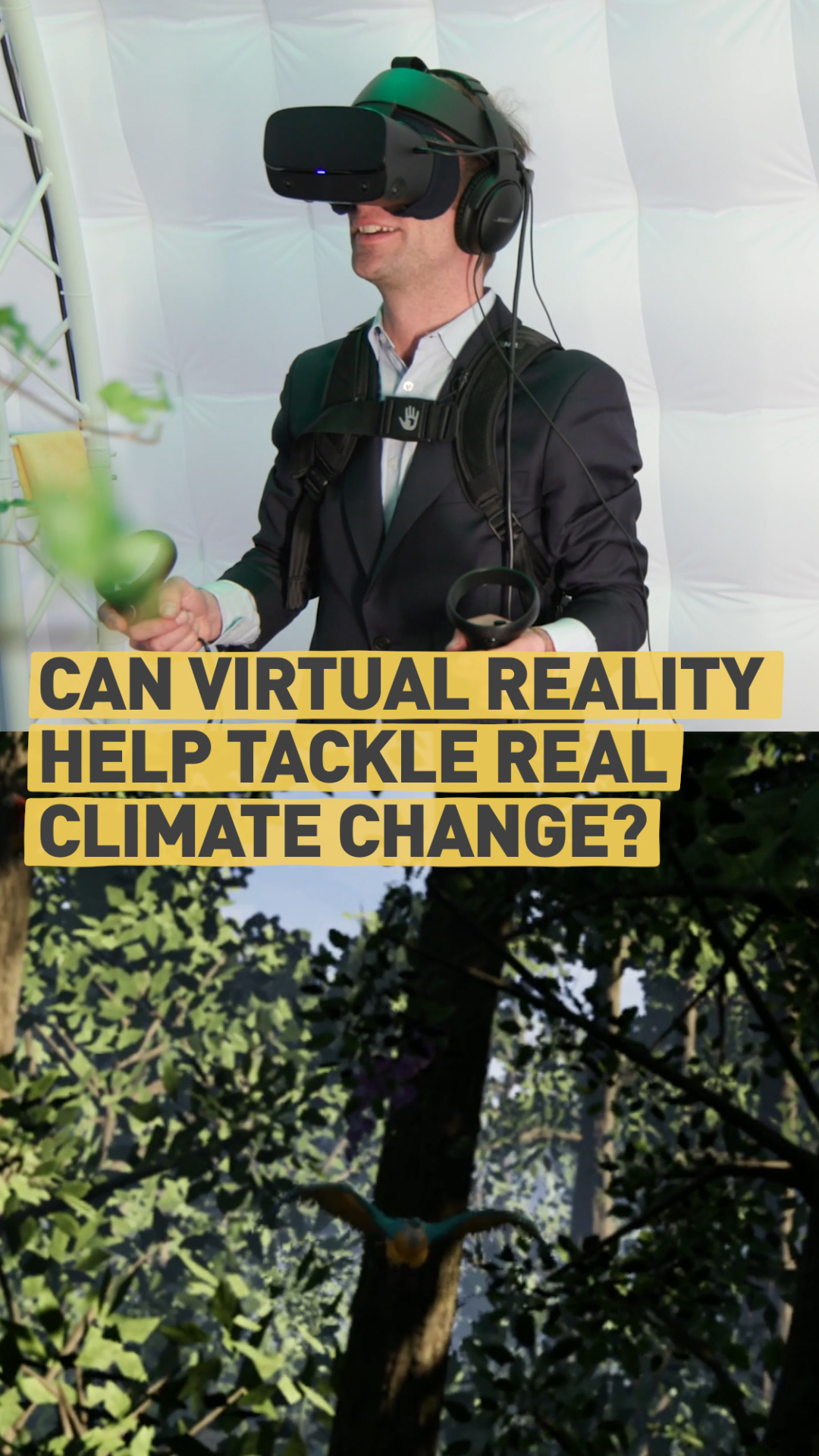02:38

Images of the devastation brought about by the recent wildfires in the Amazon forest and Australia were widely shared around the world and moved many to take action to fight the climate crisis.
But if warming up to a fluffy, helpless-looking koala that has just lost its home comes almost natural, the vision of a charred tree trunk doesn't inspire exactly the same empathy, as the experience of a tree is one we can hardly relate to.
But what if virtual reality could give us the experience of being a tree?
Milica Zec and Winslow Porter are two American virtual reality experts and directors that got together to create Tree, a virtual-reality experience that allows user to be 'transformed' into a rainforest tree.
The VR project is enriched by additional sensory inputs that allow the user not only to see as a tree would, but also feel and touch.
The experience begins with the simple gesture of putting a VR headset on and immediately transport you in the middle of the Peruvian Amazon forest.
At the beginning, you're nothing more than a tiny seed in the ground. From the dark depth of the soil you emerge into broad daylight, the sun and the calm beauty of the forest welcoming the newly born tree to life. You're shorter than mushrooms and you have a nice view of a colony of ants busy at work, but you soon grow to be the tallest tree in the forest. Looking down your trunk might give you vertigo.
The wind blows gently through your leaves, and birds fly around your branches.
But soon you got a feeling that life has suddenly changed, and something's wrong. There's smoke in the air and flames start swallowing up the forest.
This has been the fate of hundreds of thousands hectares of Amazon forest in Brazil in 2019, as it's estimated that about 76,000 fires were burning in the area.

Most fires burning within the Amazon forest every year are started by human activities such as clearing land for farming. Credit: AP Photo/Eraldo Peres
Most fires burning within the Amazon forest every year are started by human activities such as clearing land for farming. Credit: AP Photo/Eraldo Peres
The Amazon is the world's largest rainforest and for that it's considered 'the lungs of the planet'. Forests are incredibly precious sources of air, water, and shelter - and our best defense against climate change. The consequences of deforestation - a problem that despite hitting the headlines seems to be unstoppable - is something we are all experiencing in the form of global warming.
In the last few years the climate crisis has surged to be one of the current priorities in the global agenda: from a slew of UN agency reports, to the real-life impact from the Amazon to Australia and beyond, all those factors have contributed to bringing the emergency to the public's attention. Millions have hit the streets in protest around the world calling for action - and still do every day.
But still, many more than that have not. The hydro-carbon industry continues to boom. Global emissions have continued to rise. The world is on track for a temperature rise of 3 degrees Celsius or more on current trajectories.
What more can be done to push humanity to take action?
Creators Milica Zec and Winslow Porter took their installation to the recent World Economic Forum so that decision-makers could immerse themselves in the life of a tree. Porter says a growing body of research suggests that an experience this immersive could trigger the brain in a way that makes action more likely.
"By making this feel like a memory, like you were a tree in the Peruvian Amazon, you're more likely to take action, you're more likely to feel responsible for what's happening, because these issues do impact us all" says Porter.
"As we're seeing this is not just happening in the Amazon but there are forest fires happening in Australia, in California, in Indonesia - I mean, it's going to be in our backyard before we know it, so it's really important for us to be able to embody what's happening to have a closer connection and then actually raise awareness but do something about it too."
Forests still represent 30% of the planet's land area, but this number is rapidly decreasing as forest fires and human activities claim the life of thousands and thousands of trees all over the world.